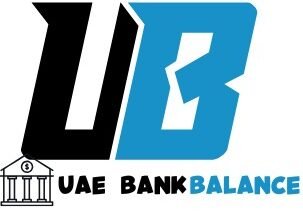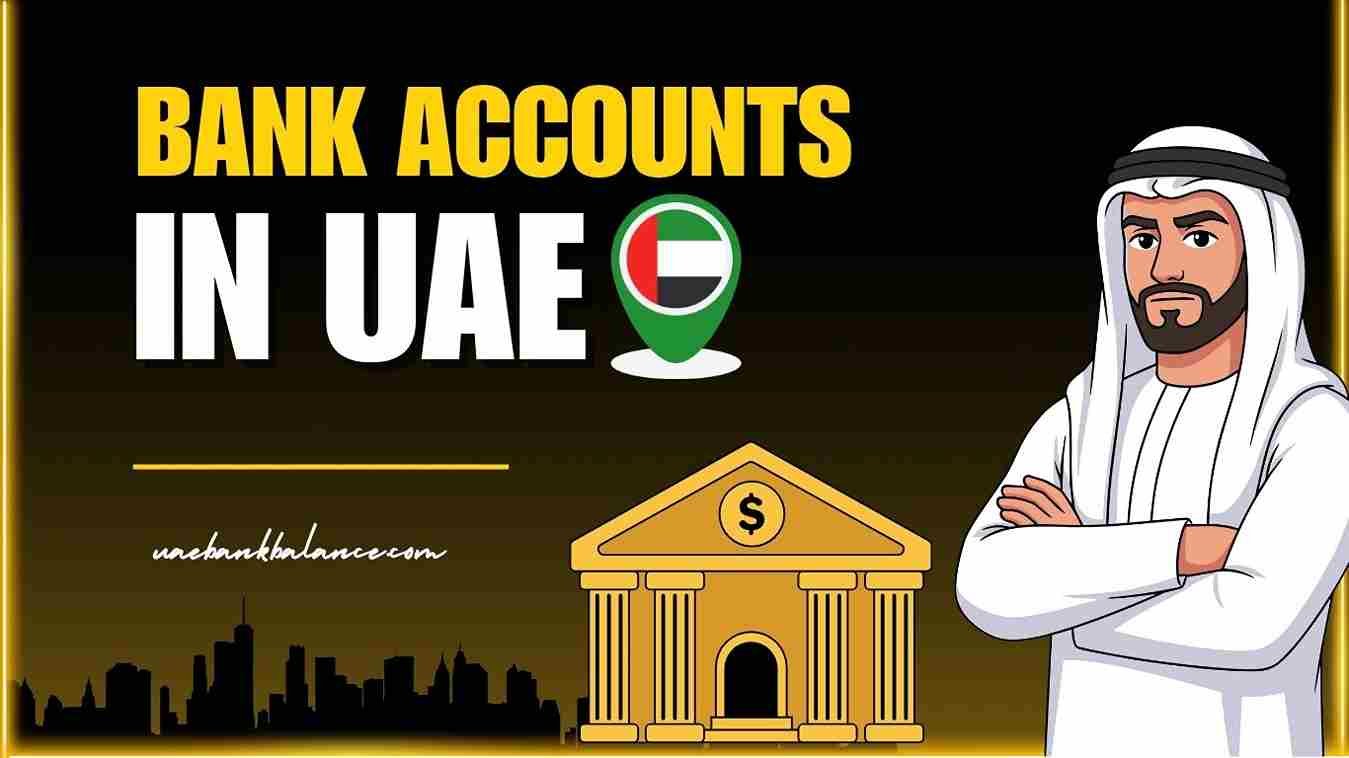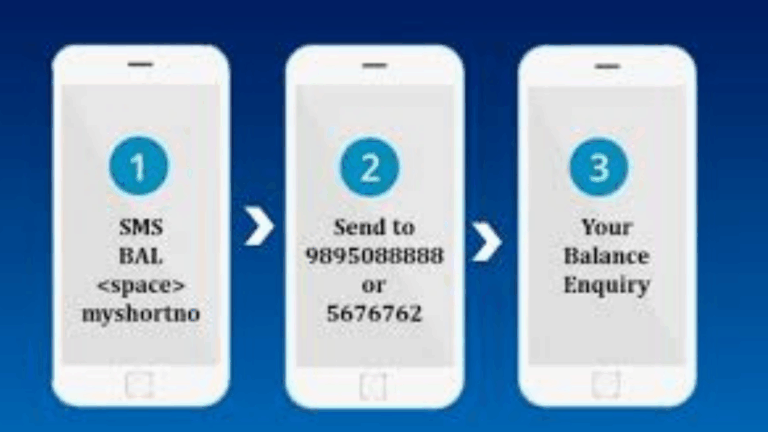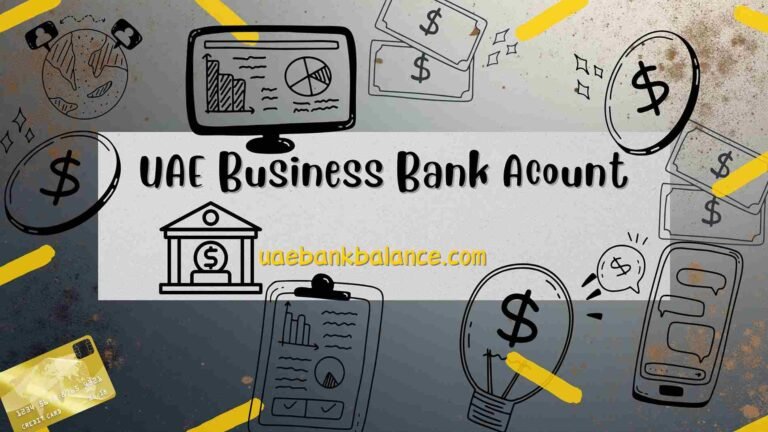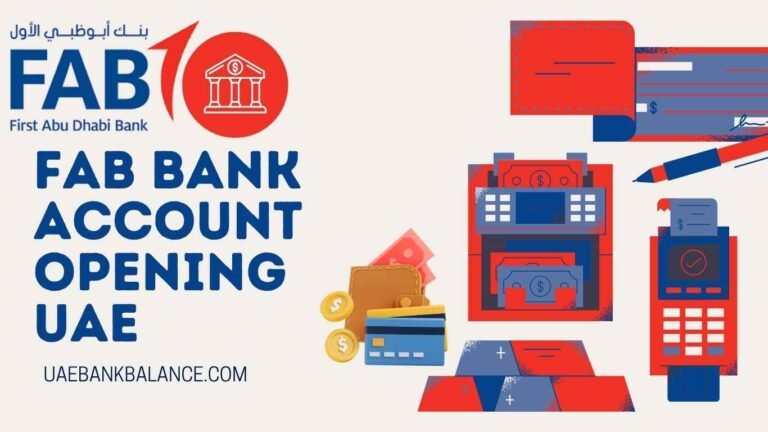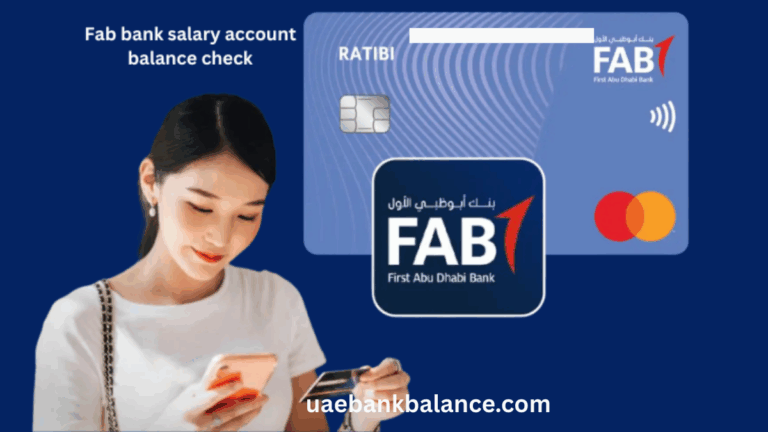Types of Bank Accounts in the UAE
Opening and choosing the right bank accounts in the UAE is crucial for managing finances, saving money efficiently, and accessing modern banking services. The UAE banking system is structured with various account types tailored to salaried individuals, freelancers, businesses, investors, and residents requiring Sharia-compliant options.
This guide explains every type of bank account in UAE, their features, eligibility, documents required, fees, and ideal use cases.
Overview of Bank Account Types in UAE
| Account Category | Key Use | Target Users | Minimum Balance Requirement |
|---|---|---|---|
| Savings Account | Saving & interest/profit earnings | Employees, residents, minors | Many have a minimum balance, some zero-balance |
| Current Account | Daily transactions & cheques | Salaried people, businesses | Yes (varies bank to bank) |
| Salary Account | Salary & monthly expenses | Employees | No minimum balance |
| Zero-Balance Account | Basic banking without minimum balance | New expats, salaried individuals | No balance required |
| Islamic Accounts | Sharia-compliant saving & spending | Muslims & ethical finance users | Varies |
| Fixed Deposit (FD) | Secure long-term savings | Investors, savers | N/A (funds locked in) |
| Business / Corporate | Business transactions & payroll | Companies, SMEs, startups | Yes (higher minimum balance) |
| Offshore Accounts | International banking & privacy | Investors, expats with global needs | High balance required |
| Joint Accounts | Shared banking | Family members, partners | Varies |
1. Savings Account in UAE
What It Is
A savings account in the UAE allows individuals to keep funds securely while earning interest or Islamic profit share based on the bank’s policies. It is designed for people who want to grow their money steadily without engaging in risky investments.
Best For
Savings accounts are most suitable for UAE residents, students, minors (with guardian assistance), and new expats looking to build a financial foundation. These accounts encourage systematic saving habits and offer flexible access to funds.
Features
Savings accounts generally offer interest or Sharia-compliant profit earnings, debit card usage, ATM access, online & mobile banking, and regular account statements. Some banks even provide zero-balance savings accounts for certain segments, making them ideal for beginners.
Documents Required
To open a savings account, you typically need your passport and visa copy, Emirates ID, residence address proof, and in some cases a salary certificate to confirm income source. Requirements may vary slightly between banks.
2. Current Account in UAE
Purpose
A current account is designed for customers who engage in frequent day-to-day financial transactions. It provides easy access to funds and supports high-volume deposits and withdrawals.
Ideal For
Current accounts are ideal for salaried individuals, self-employed professionals, freelancers, and small business traders who manage regular payments and transfers.
Key Benefits
They come with cheque-book facilities, unlimited transaction features, debit card usage, and access to mobile & online banking services. These accounts are preferred for daily operational needs rather than savings.
Note
Most current accounts require maintaining a minimum balance unless linked to a salary deposit arrangement.
3. Salary Account
What Makes It Different
A salary account is opened through an employer’s payroll setup and is used primarily for monthly salary credit. Banks offer attractive benefits to salaried users due to guaranteed monthly deposits.
Benefits
Salary accounts generally offer zero minimum balance, automatic salary credit, convenience for receiving allowances and reimbursements, and easier eligibility for credit cards and loans. Banks often prioritize salary account holders for financial services.
Who Can Apply
Any employee with a UAE-issued salary certificate or employment confirmation can apply for a salary account.
4. Zero Balance Account UAE
Best Option For
Zero balance accounts are perfect for new expats, students, freelancers, and entry-level employees who want full banking access without maintaining a minimum balance requirement.
Highlights
These accounts eliminate the minimum balance condition, include free ATM/debit cards, and enable mobile & online banking. Some accounts may require salary transfer to maintain zero-balance status.
5. Islamic Banking Accounts
Sharia-Compliant Options
Islamic banking accounts operate on Sharia principles and avoid interest. Instead, customers receive profit based on approved Islamic investment models such as Wakala and Mudaraba. Options include Islamic savings and current accounts.
Ideal Users
These accounts suit Muslims and individuals who prefer ethical banking that avoids interest-based financial products.
Benefits
Customers benefit from profit-sharing instead of interest, transparency, and oversight by a Sharia supervisory board ensuring compliance with Islamic finance guidelines.
6. Fixed Deposit Account (FD)
Purpose
A fixed deposit account is a secure method to lock your funds for a fixed period while earning higher returns compared to regular savings accounts.
Duration
Deposits may range from one month to five years, depending on the bank and customer preference.
Features
Fixed deposits offer guaranteed returns, Sharia-compliant profit options, and sometimes allow premature withdrawals under certain penalty terms. This type of account is ideal for long-term financial planning.
7. Business / Corporate Bank Account UAE
Who Needs It
Business accounts are mandatory for companies operating in the UAE, including LLCs, free-zone companies, sole establishments, and SMEs. They are used to manage business funds, payroll, vendor payments, and commercial transactions.
Features
Business accounts support high transaction volumes, multi-currency facilities, corporate online banking, payroll services, trade finance options, and business debit cards.
Requirements
Opening this account requires a company license, passport & Emirates ID copies of shareholders, tenancy or office lease contract, and a company stamp. Some banks may also request business plans or proof of funds.
8. Offshore Bank Account UAE
Best For
Offshore accounts cater to high-net-worth individuals, foreign investors, and professionals earning globally who require international banking access and flexible currency management.
Benefits
These accounts provide international fund management, asset protection, global investment channels, and multi-currency support.
Requirement
Applicants must maintain a high minimum balance and present proof of income or investment resources, as offshore banking follows strict compliance standards.
9. Joint Bank Account
Ideal For
Joint accounts are commonly used by spouses, parents with children, and business partners who want shared control over finances.
Features
They allow shared access and responsibility, can be opened as savings or current accounts, and offer flexible signatory rules—either party or both can authorize transactions depending on the chosen setup.
Steps to Choose the Right Account Type
Step-by-Step Guide
- Identify your purpose
Salary, savings, business, investment - Evaluate minimum balance requirements
- Compare fees and account benefits
- Decide on Islamic or conventional banking
- Check digital banking quality
- Review currency and international transfer options
- Apply online or visit branch
- Submit documents and complete verification
Documents Required for UAE Bank Accounts
| Document | Individuals | Businesses |
|---|---|---|
| Passport | Required | Required for all shareholders |
| Emirates ID | Required | Required |
| Visa / Entry permit | Required | Required |
| Salary certificate | If salary account | Not required |
| Trade license | N/A | Required |
| Company docs | N/A | MOA, AOA, BR, tenancy contract |
Fees & Minimum Balance Requirements
| Account Type | Balance Rule |
|---|---|
| Salary Account | No minimum |
| Savings Account | Often 1,000 – 3,000 AED |
| Current Account | 3,000 – 25,000 AED |
| Business Account | 25,000 – 500,000 AED |
| Zero-Balance Account | No balance required |
Final Thoughts
The UAE banking system offers diverse bank accounts tailored for every financial requirement, whether you’re a student, professional, investor, or business owner. Understanding account types helps you avoid penalties, maximize financial benefits, and ensure long-term banking convenience.
When choosing a bank account, look at fees, digital services, minimum balance, Sharia-compliance, and banking support quality before applying.
